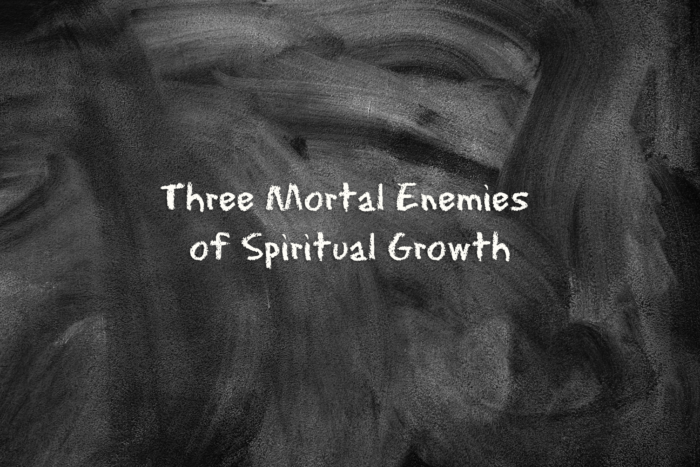Time for a Change
Have you ever felt like you were in a spiritual battle when you started to really give sincere effort to read and study the Word? There’s a reason for that.
Satan knows that the power for the Christian life is in God’s Word.
It’s not in a book about God’s Word, it’s not in some mystical experience that could be God (but surely isn’t), and it’s not in the music that makes us feel all warm and fuzzy inside. These are counterfeits. They are designed to make us feel close to God without really being close to God.
It’s called deception.
I am amazed at how few Christians study the Word. They say they are a Christian and, yet, there is no love in their heart for the Bible.
Of course, we can see why this is.
The church has, ever so steadily, been moving its focus from the Bible to other things. Things like entertainment, programs, social justice, and political agendas.
And so its people are left without the nourishment of the Word, without the protection of the Word, and without the reward of the Word. And they do not even realize it.
It wasn’t until I was in my 40s that I really started digging into the Bible. It was then that I started actually understanding what I believe.
I am so ashamed to even write this. How could I be a strong believer and wait that long to study the Word?
While I was full of conviction and dedication and commitment to God, my half-illiteracy of the Word was a very real encumbrance.
So this is why I write. Many of you have read all of this before. I’ve included it in earlier posts. But I just keep thinking about this right now.
God’s Word has been relegated to the background by most Christians as they try to live their lives the best they can. They search out books, counselors, and even medication to help them cope when life throws a curve ball. While these things aren’t necessarily wrong, why is God and His Word always our last place to go? Why do some of us never open up the Word to search for answers there?
I remember hearing someone say about twenty years ago that the next doctrine that would be severely attacked is the sufficiency of God’s Word. Boy, was he right. This is being attacked in so many ways, it is hard to keep track.
The mainstream church is teaching its followers that–
The Word is no longer sufficient to help us with our problems.
The Word is no longer sufficient to deepen our intimacy with God.
The Word is no longer sufficient to teach us the Truth.
The Word is no longer sufficient (or relevant enough) to reach the lost.
This lack of interest in and disbelief in the power of the Word has even trickled into biblical, conservative churches. Maybe even your own church…
Oh, how sad! How tragic!
For the Word is sufficient for all of these things and so much more!
And Satan knows it. And THIS is why we feel spiritually attacked when we make an effort to study the Bible. THIS is why Satan and his minions are attacking the Word so fiercely, inside Christendom and without.
Sometimes I feel like a broken record in writing this but, truly, if I can accomplish no other thing than to draw fellow believers to actually study what they say they believe, I will feel like I did something to further God’s Kingdom on this old, broken, sorry earth.
For too long now, we Christians have declared our faith in God and, yet, have relegated His Word to a shelf somewhere. Many don’t even get it out to go to church anymore because churches aren’t even using it.
So maybe it’s time for a change.
If you call yourself a Christian but make no time for God’s Word, then it is probably past time for a change.
If you, like me, have become aware of the inestimable value of God’s Word in your life, then why aren’t we saying anything to other Christians around us? Perhaps we need to change, too. Those of us who get it must speak up! We must encourage believers to get in the Word.
We need to change, too–we need to be bold and courageous enough to point people to the Word in a church scene that just doesn’t really care.
All we need for salvation and eternal life is in the Bible.
All we need for life and godliness is in the Bible.
All we need to be close to God is in the Bible.
All we need to know to reach the lost is in the Bible.
It’s all there.
So let’s study it, know it, and encourage others to do the same!
____________________________________________________
Recently, Pastor Dean (my brother) has been preaching on Psalm 19, which has naturally led to sermons on God’s Word. A short series of those sermons, titled “The Inestimable Value of God’s Word”, may encourage you as you reflect on what I wrote here today. I thought I’d go ahead and share them for anyone who may be interested–
The Inestimable Value of God’s Word, Part 1
The Inestimable Value of God’s Word, Part 2
The Inestimable Value of God’s Word, Part 3
By the way, you can find the whole series here (just scroll down until you see Psalm 19 in the lefthand column). It’s a great series and I highly recommend!










